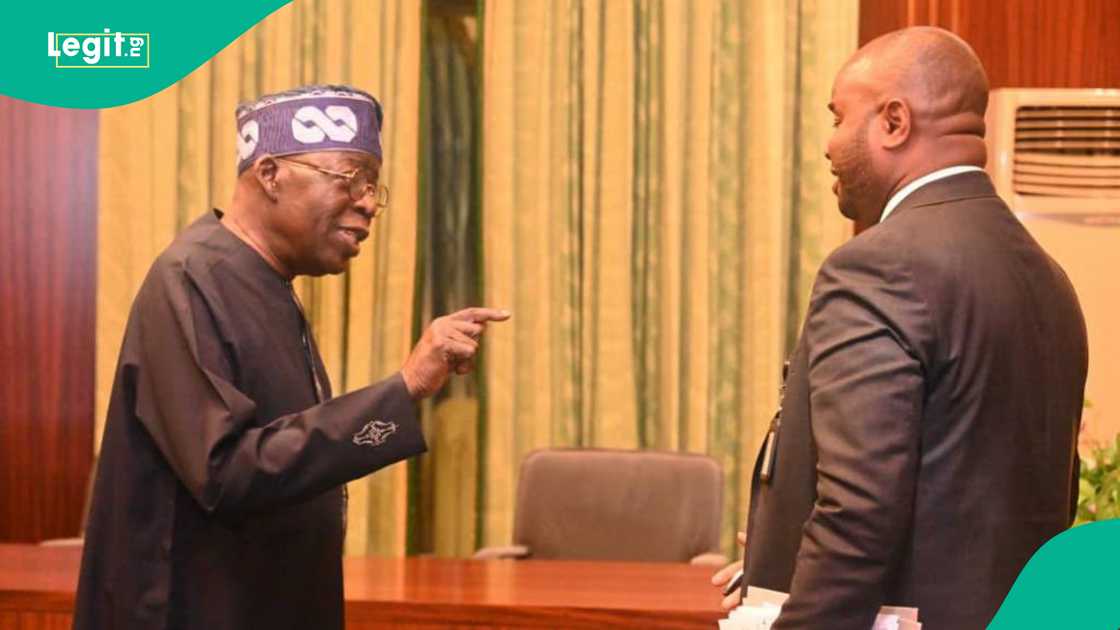Zacch Adedeji: We All Can Build Nigeria Through Tax Reform
At the Domestic Investors Summit held in Abuja, Executive Chairman of the Federal Inland Revenue Service (FIRS), Dr. Zacch Adedeji, delivered a bold message: Nigeria’s tax reform is not just a bureaucratic shuffle—it is a national transformation.
Speaking with conviction and clarity, Adedeji laid out the government’s new approach to taxation, one he says is “designed to empower growth, not frustrate it.”

Source: UGC
A unified revenue system for a new Nigeria
“We are not here for quick wins,” Adedeji told investors and policymakers. “This is about building long-term prosperity through trust, transparency, and fairness.”
His remarks, which were later analysed by Arabinrin Aderonke, his technical assistant on broadcast media, emphasised that Nigeria’s restructured tax system is focused on partnership between citizens and government.
One of the most significant changes announced is the replacement of the Federal Inland Revenue Service with the Nigeria Revenue Service—a new unified body responsible for collecting federal, state, and local taxes.
This streamlined agency is expected to make tax compliance easier for businesses and reduce confusion caused by overlapping tax authorities.
“This consolidation strengthens our tax system and puts an end to the days when agencies ambushed businesses with random levies. We are removing fear and replacing it with trust,” Adedeji said.
The new tax strategy shifts focus from taxing investments to taxing profits. Entrepreneurs can now invest in their businesses without facing immediate tax penalties.
This reform, Adedeji argued, will reward hard work and innovation rather than stifle it.
“Taxation must not be a burden. It must be a platform for growth,” he said. “We are taxing success, not struggle.”
The introduction of a simplified four per cent National Development Levy will replace numerous minor levies, providing clarity and predictability.
Businesses can also now claim VAT credits on capital equipment—a change projected to reduce start-up costs by nearly eight per cent.
Incentives for SMEs and a joint taxpayer committee
A cornerstone of the reform is support for small and medium-sized enterprises (SMEs), which power much of Nigeria’s economy.
Tax credits and incentives are being extended to this sector, helping to spur job creation and innovation.
In addition, a Joint Taxpayer Committee has been established to resolve disputes across different levels of government, thereby providing more certainty for businesses.
“This is not about documents and bills,” Aderonke noted. “It’s about creating a country where citizens are no longer punished for trying to build something meaningful.”
Adedeji called for a new culture of governance—one where tax policy is clear, fair, and predictable, and where citizens can trust that the government will deliver results.
“The taxman’s job has changed,” he told the audience. “It’s no longer to frustrate; it’s to empower.”
His speech received applause for its directness and sincerity. “Nigerians are tired of words,” Aderonke observed.
“What we heard was not a policy talk—it was a charge. A call to build a better country together.”
She praised Adedeji’s leadership style, calling him a rare public servant who “isn’t performing leadership, but doing the work.”
From harmonising tax systems to reducing bureaucratic bottlenecks, Adedeji has, in her words, reimagined what taxation can look like in Nigeria.
Aderonke concluded her reflection with a reminder to Nigerians: “This reform is not just about Zacch Adedeji or the government.
It is about all of us. If we want a new Nigeria, we must embrace this new tax culture and reject the habits that held us back.”

Source: Twitter
With clarity of vision and commitment to action, Adedeji has repositioned the most feared part of governance—taxation—as a driver of national progress.
FIRS unveils strategy to achieve N25.2trn tax revenue
Legit.ng earlier reported that the Federal Inland Revenue Service (FIRS) has finally released the breakdown of its strategy to achieve the N25.2 trillion revenue target in 2025.
The National Assembly Joint Committee on Finance announced this revenue target of N25.2 trillion for the FIRS on January 15, 2025, after commending them for successfully surpassing last year’s target.
FIRS recorded a total revenue of N21.6 trillion in 2024, surpassing the target of N19.4 trillion by an impressive 11% and setting a new record for the service.
Source: Legit.ng





